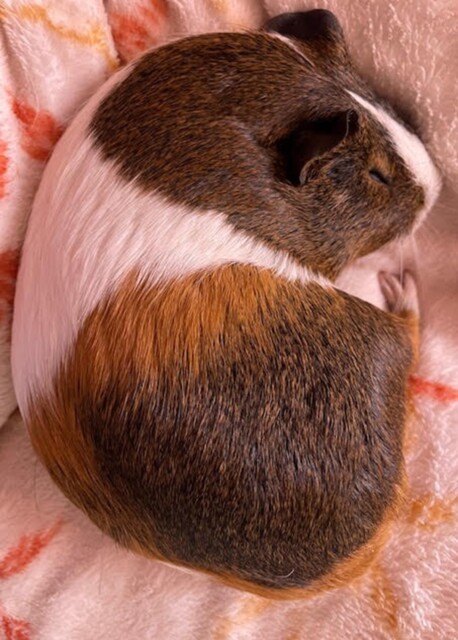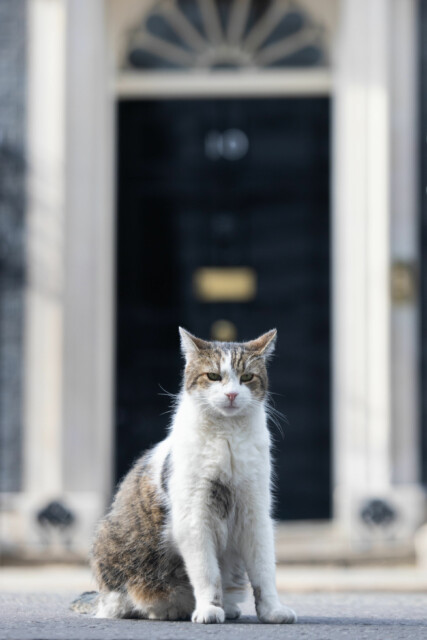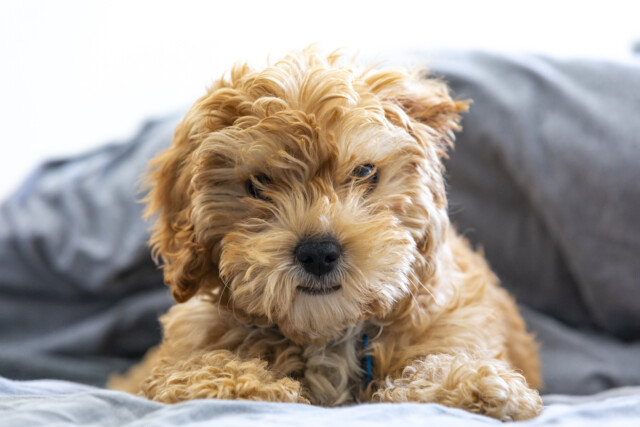HE is a vet on a mission to help our pets . . . and he is here to answer YOUR questions.
Sean, who is the head vet at the tailored pet food firm tails.com, has helped with owners’ queries for ten years. He says: “If your pet is acting funny or is under the weather, or you want to know about nutrition or exercise, just ask. I can help keep pets happy and healthy.”
Today our pet expert advises on an eight-year-old Cockapoo who keeps hiding in corners or under furniture
 Sean McCormack, head vet at tails.com, promises he can ‘help keep pets happy and healthy’
Sean McCormack, head vet at tails.com, promises he can ‘help keep pets happy and healthy’
Q) OUR eight-year-old Cockapoo Riley has been acting oddly lately – he keeps hiding in corners or under furniture.
He is no longer interested in food and doesn’t come when called. Sometimes he seems to be avoiding us.
He used to follow me everywhere. Now we spend half our time hunting around the house to find him.
He still seems to enjoy his walks and doesn’t appear to be in pain but no longer plays in the evenings like he used to. We haven’t taken him to the vet yet, as it stresses him out.
I can’t think of anything that could have frightened him that coincided with this behaviour except it started when I tested positive for Covid.
Elizabeth Sandford, Worthing, West Sussex
Sean says: I’m pretty sure the Covid link is just a coincidence.
My first thought when hearing a history like this is that pain is part of the picture.
Dogs are stoic and hide pain. They rarely cry out, especially when it’s chronic, gradual pain.
One of the most common signs is a change in behaviour, including withdrawal and a seeming lack of willingness to interact, like you describe.
I know Riley doesn’t like the vet clinic, but it is necessary to take him along for a full physical examination and hopefully they can find out where he’s uncomfortable, if that’s the issue.
If not, they might want to run some bloods or other tests.
It’s best to find out now what’s up, rather than wait and see.
Q) WE have taken on our relatives’ parrot after they passed away, but he seems down in the dumps
What can we do to cheer Burt up?
Jasmine Black, Sunderland
Sean says: Sorry to hear your sad news.
It’s natural for such a sociable bird species to grieve the loss of their long-term human owner.
Most parrots should have the company of their own kind so they can express natural behaviours.
And similarly, many owners don’t spend enough time with pet parrots, hence problem behaviours can arise, like feather-plucking and depression.
So I would assess honestly whether you can give Burt all he needs, and if so consider maybe getting him a bird companion. Or consider rehoming him to a parrot sanctuary.
 Jasmine Black explains: ‘We have taken on our relatives’ parrot after they passed away, but he seems down in the dumps’
Jasmine Black explains: ‘We have taken on our relatives’ parrot after they passed away, but he seems down in the dumps’
Q) MY 13-week-old Westie, Mac, will not pee outside, no matter how long I stay out with him.
As soon as he comes in, he does it before I can stop him.
I’ve tried shouting “No!” and taking him back out but he doesn’t finish what he started.
Is there anything I can do? When he first came here we used training pads but with little success. The only pad now is in his cage.
Susan Salamach, Oldham
Sean says: This is frustrating but give Mac credit, he’s still just a baby. Go back to basic house-training rules.
Mac can only be on training pads while he is indoors. Lay them all over the floor in one room. Gradually reduce the area covered by pads.
He’ll hopefully associate the pads as the place to go and continue using them.
When you notice him wanting to go, take him out to pads placed outside. The pads are the key, and gradually wean him off them, indoors and out.
Don’t shout at him for toileting in the wrong place. That is why he won’t go while you’re watching.
Q) ONCE a week we give my horse Major a sugar lump as a treat.
He loves it after a long ride. Should I stop?
Bree Taylor, Swansea
Sean says: It’s easy to see no harm in it if it’s one lump being given to a 600kg animal once a week.
But if Major is overweight, I’d be inclined to recommend a lower-calorie treat.
Ponies, in particular, can be prone to issues like diabetes and laminitis which can be exacerbated both by weight and sugar or highly glycaemic carbs in the diet.
There is also the issue of dental health and decay.
So I’d swap the sugar cube for something natural like a handful of greens, a chunk of carrot or apple.
Star of the week
 Skye the guinea pig prompts her owner for her favourite veggies
Skye the guinea pig prompts her owner for her favourite veggies
SKYE, the rescued guinea pig, is a good girl as she loves getting her “five a day” – and prompts her owner for her favourite veggies.
The two-year-old was rescued by Gillian Jackson, 59, from Rotherham, who said she squeaks to ask for her food at dinner time.
Gillian said: “I adopted Skye from a guinea pig sanctuary.
“She loves people, enjoys laying on a fleece on my lap and gives me lots of kisses.
“She knows when it’s tea time for her, after I get home from work, and she ‘wheeks’ for her veggies.
“Skye is a lone piggy, who gets along with people.
“She is a complete joy to me.”
How to be new cat’s purrfect pal
 Larry the cat, chief mouser to the Cabinet Office, met his fourth owner in a decade this week when new PM Liz Truss moved into No10
Larry the cat, chief mouser to the Cabinet Office, met his fourth owner in a decade this week when new PM Liz Truss moved into No10
LARRY the cat, chief mouser to the Cabinet Office, met his fourth owner in a decade this week when new PM Liz Truss moved into No10.
He has served as a trusted companion to her predecessors David Cameron, Theresa May and Boris Johnson. But now, the 15-year-old must get used to a new owner.
Experts have shared their advice to Paws and Claws readers on how best to ensure a smooth transition if bringing a new feline friend into the house.
Dr Karlien Heyrman, of Pets At Home, said: “Cats are creatures of habit and any change to daily routine can potentially be distressing.
“There are some simple steps both the new Prime Minister, and any new pet owners, can take to ease anxiety and build a strong bond with their new friend.”
- Introduce yourself one-by-one: Cats can feel overwhelmed when confronted with lots of unfamiliar people. If you have another pet, make sure they have time to get acquainted with the other’s scent, for example by swapping their toys, before they come face to face.
- Give them space: Cats like to be up high, so try to provide comfy areas on all levels.
- Make time to bond: Most cats love to play. Remember to give your cat a soft toy or something to catch as they can get frustrated if they’re not able to pounce on their ‘prey’.
- Be patient: It’s common for anxious cats to only eat or use the litter tray at night, or not at all in the first 24 hours. Leave food, check trays often and consult a vet if problems persists. Get more advice at petsathome.com.








